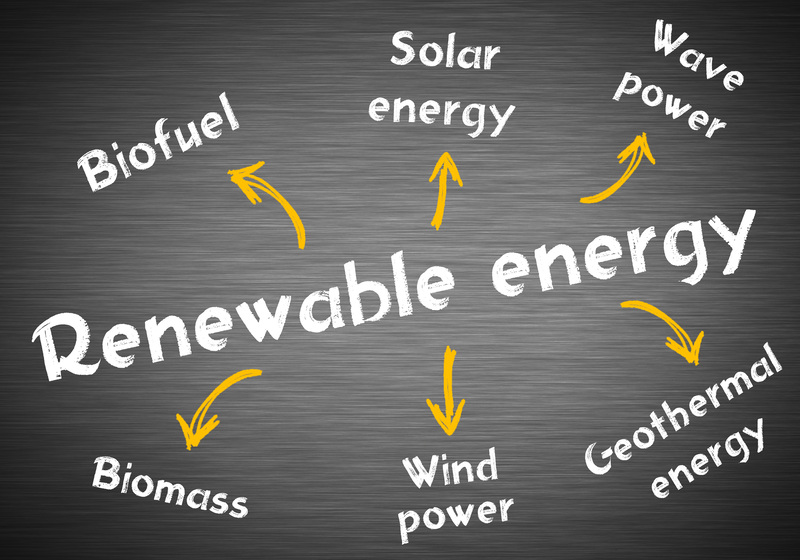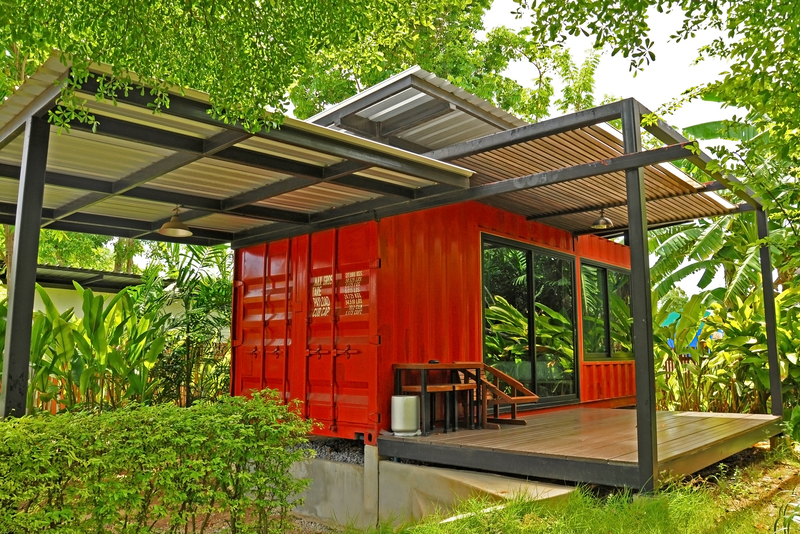How to Spend Less When Disposing of Bulky Waste Items
Disposing of bulky waste items, like furniture, old appliances, mattresses, and renovation debris, can be a costly and logistically challenging process for many households and businesses. Yet, there are cost-effective ways to get rid of large, unwanted items without spending a fortune.
If you're looking to spend less on bulky waste disposal, you've come to the right place. In this comprehensive guide, we'll cover various methods, useful tips, local services, and creative approaches to reduce your expenses when removing large waste items. Our aim is to help you save money, act sustainably, and keep your space clutter-free.
Understanding Bulky Waste Items
Before diving into cost-saving strategies, it's essential to understand what counts as bulky waste. Typically, these are items too large or heavy for regular curbside trash collection. Examples include:
- Old sofas and chairs
- Mattresses and box springs
- Fridges, ovens, dishwashers
- Garden waste (large branches, stumps)
- Carpets and large rugs
- Bathroom or kitchen fixtures
- Broken electronics and large TVs
Due to their size and potential environmental impact, disposing of bulky waste items often involves special services or procedures, which can come with significant fees.

Why Bulky Waste Disposal is Expensive
Many municipalities charge extra for collecting and processing bulky items because of:
- Transportation costs – Special trucks and extra labor required
- Landfill fees – Higher fees for oversized items or excessive weight
- Environmental regulations – Proper disposal or recycling standards can raise costs
- Disassembly requirements – Some items must be broken down, e.g., removing refrigerants from appliances
Hence, minimizing bulky waste disposal costs is all about creativity, resourcefulness, and knowledge of your local options.
Cost-Saving Strategies for Bulky Waste Removal
1. Reuse, Repurpose, or Donate
The most affordable way to dispose of large items is often not to dispose at all! Instead, consider:
- Donating usable furniture or appliances to local charities, shelters, churches, or thrift stores.
- Offering items for free on neighborhood platforms, such as Facebook Marketplace, Freecycle, or Craigslist.
- Repurposing materials at home--for example, turning an old bed frame into shelving.
Many charities or rescue organizations will pick up items for free, saving you both time and disposal fees. This method reduces landfill waste and benefits your community.
2. Sell or Give Away Bulky Items Online
If your bulky item is in decent condition, you may even make some money by selling it. Try posting on:
- eBay Local
- Facebook Marketplace
- Nextdoor
- OfferUp
Even if you offer the item for free, someone might haul it away, helping you spend less on bulky waste disposal.
3. Check Your Municipality's Free Bulk Waste Collection Days
Many local councils offer one or two free bulky waste collections per year for residents. Search your city or county website for:
- Special collection days for large waste
- Pre-scheduled pickups (may require advance booking)
- Drop-off events at local landfill or recycling centers
Planning ahead for these events can help you avoid costly private haulers.
4. Share Skip Rental or Dumpster Services
If you're taking on a major clean-out or renovation, consider sharing a skip bin or dumpster rental with neighbors. By pooling your waste, you divide the total cost, leading to significant savings per person.
To organize a shared dumpster:
- Coordinate with several households for a single rental period.
- Choose a company that allows mixed waste (not all do).
- Ensure everyone follows the rules to avoid surcharges.
5. DIY Hauling to Landfill or Transfer Stations
If you have access to a vehicle and some help, self-hauling can slash your disposal costs. Many municipal facilities charge lower fees for individuals dropping off bulky waste items compared to scheduled curbside pickups.
- Check landfill operating hours and acceptable items before going.
- Bring proof of local residence to access reduced rates.
- Ask about recycling options for items like mattresses, appliances, or scrap metal, which may be cheaper or free to drop off.
You may be surprised how much you can save by hauling your own bulky waste--especially if you gather multiple items over time.
6. Break Down Items Before Disposal
Many disposal companies and municipal collection services charge by the volume. Reducing the size of bulky waste items before setting them out for pickup can help minimize your fees.
- Disassemble furniture into flat sections.
- Cut up carpets and large materials for easier handling.
- Remove non-recyclable components (like metal or electronics) for separate disposal.
Not only can you fit more into picked-up piles or a dumpster, but you may also benefit from lower fees per cubic meter or yard.
7. Compare Local Bulky Waste Removal Companies
If municipal services don't meet your needs, it's worth shopping around for private haulers. Search online and request quotes from at least three companies.
When comparing prices:
- Ask about base fees, weight or volume charges, and possible surcharges.
- Find out if any items trigger extra handling costs (e.g., electronics, mattresses).
- See if discounts apply for off-peak bookings, curbside placement, or multiple items.
- Check reviews for reliability and transparent pricing.
Some companies offer discounted rates for seniors, veterans, or first-time customers, so don't forget to ask!
8. Make Use of Extended Producer Responsibility (EPR) Programs
For certain bulky goods--appliances, mattresses, electronics--manufacturers or retailers may be required by law to take them back for recycling when you buy new ones. This policy is known as Extended Producer Responsibility (EPR).
- Ask your appliance or furniture retailer if they offer free haul-away service with a new purchase.
- Look up state or national "take-back" programs for electronic and hazardous waste.
Taking advantage of EPR can help minimize your bulky waste disposal costs while ensuring proper recycling.
9. Partner with Local Recycling Centers
Certain materials--like scrap metal, appliances, and electronics--have recycling value. Local recycling centers or scrap dealers may take these off your hands for little or no charge.
- Remove non-metal parts from metal furniture or items before delivery.
- Ask about rebates for valuable metals (e.g., copper, aluminum).
Not only does this approach reduce bulky waste removal expenses, but it supports a more sustainable future.
10. Look for Community Cleanup Events
Neighborhood associations and local governments occasionally sponsor community cleanup days, offering free or reduced-cost disposal of large waste items.
- Subscribe to your city's or local group's newsletter for announcements.
- Bring bulky waste only during these events to save money.
This is a great way to connect with neighbors while addressing your large item disposal needs affordably.
Tips for Minimizing Bulky Waste Creation
Ultimately, the easiest way to keep bulky item disposal costs low is to generate less bulky waste in the first place. Here's how:
- Buy quality and repair – Invest in durable furniture and appliances, and repair instead of discarding when possible.
- Opt for modular or reusable items – Choose products designed for disassembly or recycling.
- Rent or borrow – For occasional needs, consider renting large items rather than buying.
- Plan renovations wisely – Deconstruct for reuse, rather than demolishing and discarding everything.
- Host a swap event – Trade unwanted items with friends and neighbors.
Environmental Benefits of Affordable Bulky Waste Removal
Finding low-cost methods to get rid of large unwanted items does more than help your wallet. It also:
- Reduces landfill waste, conserving natural resources
- Promotes donations and reuse, supporting local charities
- Encourages recycling of valuable materials
- Minimizes illegal dumping in your neighborhood

Frequently Asked Questions About Bulky Waste Disposal on a Budget
- What is the cheapest way to dispose of large furniture?
- Usually, donating or giving away furniture through online platforms or to local organizations is free. If that's not possible, use your town's scheduled bulky waste collection days or self-haul to the landfill for the lowest cost.
- Can I leave bulky waste at the curb for free collection?
- Some towns allow a limited number of free curbside bulky pickups per year. Check with your local sanitation department for exact rules and restrictions.
- Is there a way to recycle mattresses or appliances for free?
- Many areas have dedicated mattress or appliance recycling programs, sometimes supported by manufacturer take-back (EPR) systems. These may be free or come with a small fee that's much cheaper than landfill disposal.
- How can I avoid fines when disposing of bulky items?
- Never dump items illegally. Use official collection days, arrange legal removal, or drop off at authorized disposal facilities to stay compliant and avoid costly penalties.
Summary: How to Spend Less When Disposing of Bulky Waste Items
Disposing of bulky waste items doesn't need to cost a fortune. By taking advantage of donation and resale opportunities, municipal services, community events, DIY hauling, and disassembly methods, you can significantly reduce your expenses.
Always check your local options before hiring private junk removal companies. And whenever possible, minimize bulky waste at the source through mindful purchasing and reuse.
By following the strategies outlined in this guide, you'll not only spend less on bulky waste removal but also contribute to a cleaner, greener community.
Key Takeaways:
- Donate, reuse, or resell to avoid disposal fees
- Use municipal or free collection services
- Share costs with neighbors
- Haul items yourself for lower fees
- Disassemble big items to reduce volume charges
- Check manufacturer or retailer take-back programs
No matter your situation, there's usually a smarter and more affordable way to dispose of large waste items. With some research and planning, you can save money while disposing of bulky waste responsibly.